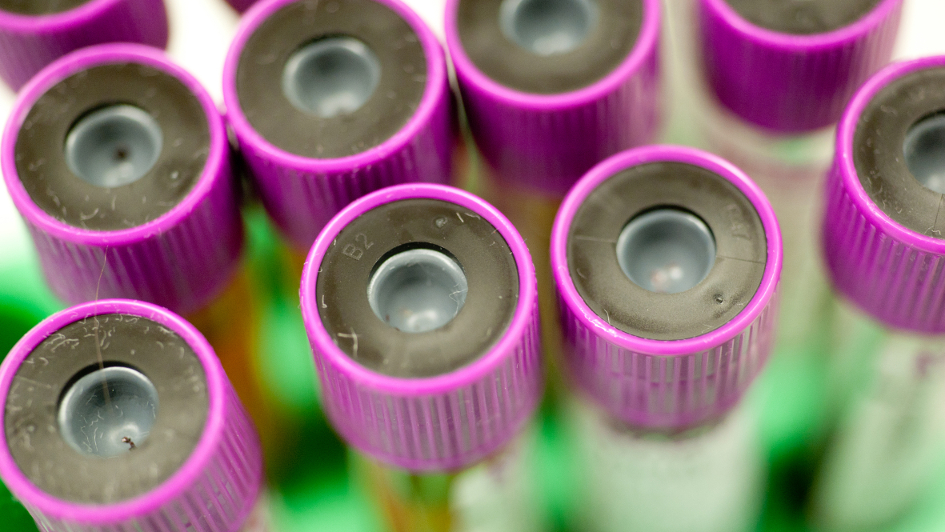
A personalised cancer vaccine, used in combination with an immunotherapy drug, triggers a response from the immune system that is specific to the cancer, according to the results of an early clinical trial.
Researchers found the treatment showed some clinical benefit in patients with a range of advanced cancer types and they believe it could be even more beneficial for people with earlier-stage disease who have undergone less treatment.
A vaccine unique to a patient's tumour
A team at The Institute of Cancer Research, London, and The Royal Marsden NHS Foundation Trust tested the treatment, known as RO7198457, in combination with the PD-L1 inhibitor atezolizumab (Tecentriq), as part of a large phase I clinical trial involving more than 140 patients.
Patients on the trial received a vaccine which is unique to their tumour based on the genetic information found within tumour biopsies and blood samples.
The results will be presented at the AACR Virtual Annual Meeting II, to be held 22-24 June 2020. The study was funded by Genentech and BioNTech.
Unmasking cancer to help the immune system
As tumours grow, they produce material, known as neoantigens, which should help the immune system recognise the tumour as ‘foreign’ and attack it – except cancers have also developed ways to hide from the immune system. The vaccine helps unmask cancer to the immune system by activating immune cells called T-cells, and encouraging the immune system to produce more of them, to attack the cancer.
The vaccine comprises of genetic material called messenger RNA that corresponds to the genetic make-up of the neoantigens specific to each person’s tumour.
By giving the vaccine alongside an immunotherapy, which works by stopping cancer’s ability to defend itself against T-cells, the researchers hope the two treatments will provide a double hit against the tumour.
Well tolerated by patients on the trial
The researchers recruited 144 patients with advanced solid tumours for this trial – the most common tumour types were non-small cell lung cancer, melanoma skin cancer, triple-negative breast cancer, and urothelial cancer.
Most patients had already received some form of therapy and nearly 40 per cent of patients had previously received immunotherapy.
The researchers found that the treatment was well tolerated by the patients and nine responded to treatment (an overall response rate of 8 per cent). One patient with bowel cancer had a complete response, and 53 patients had stable disease.
When the researchers evaluated the blood of 63 patients, they observed immune responses induced by the vaccine in 73 per cent of patients.
Alongside these findings, results from three other studies taking place at the Drug Development Unit at The Institute of Cancer Research (ICR) and The Royal Marsden are being presented at the AACR Virtual Meeting – Ice-CaP, FraME, and HYPER. These three studies are managed by the Investigator Initiated Trials team at the ICR.
We are building a new state-of-the-art drug discovery centre to develop a new generation of drugs that will make the difference to the lives of millions of people with cancer. Find out more about the challenge of cancer drug resistance and help fund research to help finish cancer.
A viable immunotherapy for numerous cancer patients
Dr Juanita Lopez, Consultant Medical Oncologist at The Royal Marsden and Clinical Researcher at the ICR, said:
“Many cancers are able to successfully avoid the immune system, and we are only starting to understand the myriad ways in which cancers can do this. Because many mutations are not shared between cancers, a personalised treatment approach that targets individual tumour neoantigens may be a viable immunotherapeutic strategy for numerous patients with cancer.
“In this trial, we show that we were able to generate tumour-specific immune responses in the majority of evaluable patients using a personalised cancer vaccine approach in combination with immune checkpoint blockade. While the clinical response rate overall was low, this is likely to be because many of the patients treated in our study had very advanced disease, and were heavily pre-treated.
“We are now exploring this treatment in patients with previously untreated melanoma and in patients who have had surgery for early-stage non-small cell lung cancer.”